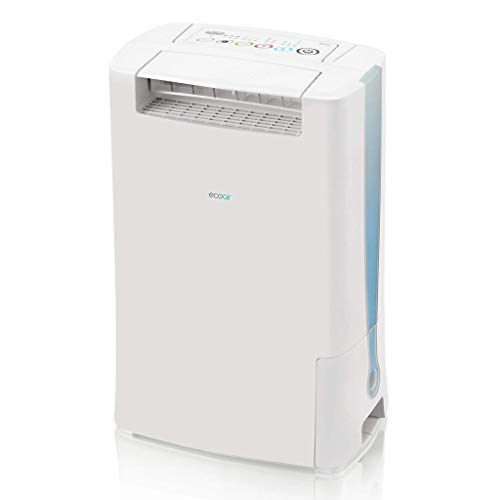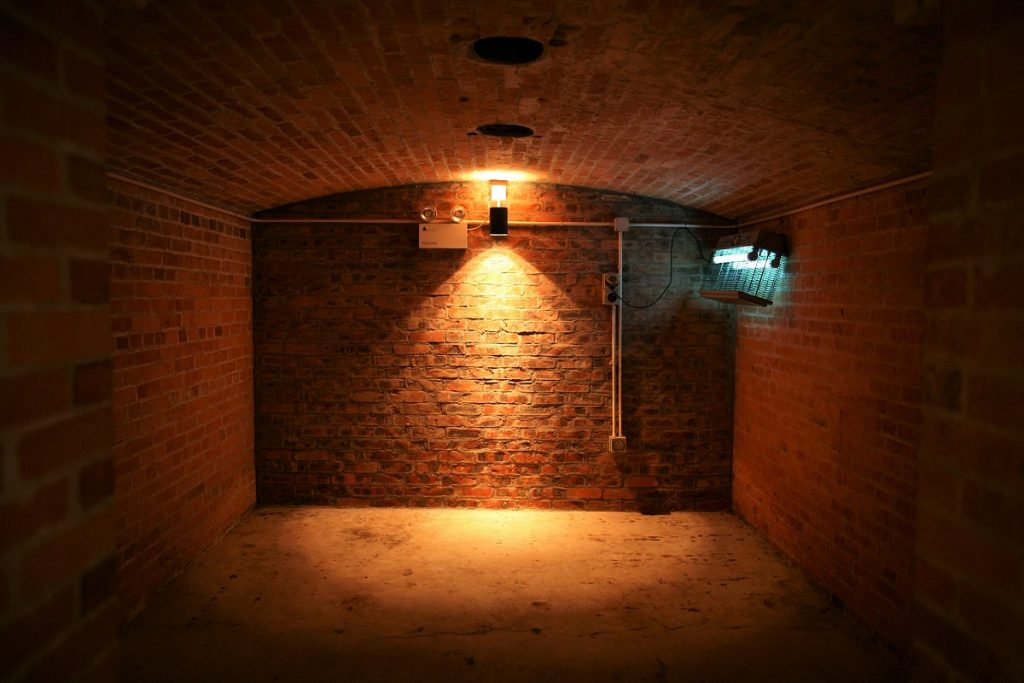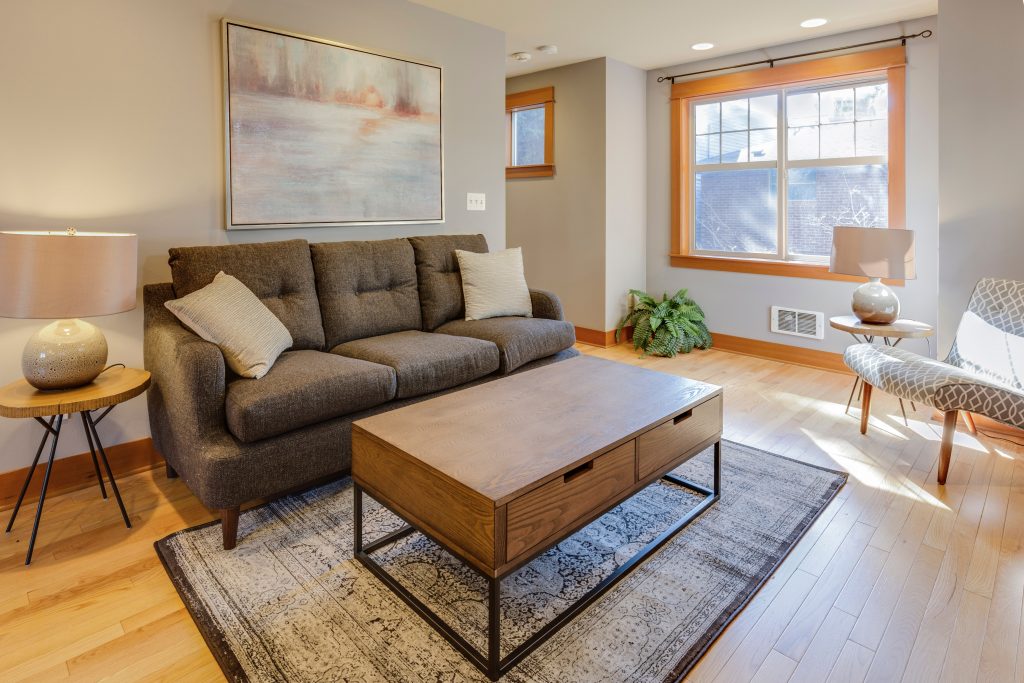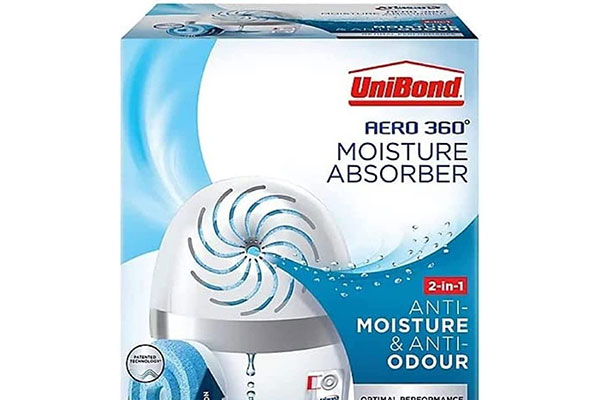Best Dehumidifier for Basement – EcoAir DD128 Blue Desiccant Dehumidifier
The EcoAir DD128 Blue Desiccant Dehumidifier is specifically good for basements because of its efficient and effective operation in low temperature environments, as well as its features that make it well-suited for use in a basement:
- Desiccant Technology: Unlike compressor-based dehumidifiers, the DD128 uses desiccant technology, which allows it to effectively remove moisture from the air even in low temperature environments such as basements.
- Large Water Tank: With a large water tank capacity, the DD128 can run for extended periods of time without needing to be emptied, making it a convenient choice for basements.
- Low Noise Level: The DD128 operates quietly, making it ideal for use in a basement where you want to minimize distractions.
- Portable Design: Its compact and lightweight design makes it easy to move around, allowing you to place it wherever you need it in the basement.
- Ease of Use: The DD128 has an intuitive digital control panel and automatic shut-off feature, making it user-friendly and easy to operate.
These features make the EcoAir DD128 Blue Desiccant Dehumidifier a good option for controlling moisture levels and improving air quality in basements.

EcoAir DD128 Blue Desiccant Dehumidifier Features
- Extraction 8l per day
- Water tank: 2.2l
- 39dB noise level
- Weight: 6kg
- Power: 331W
Do I Need Dehumidifier for Basement?
Basements exist in many homes across the globe and provide useful storage and additional living space. Owning a property with a basement comes with its own set of challenges. One of these challenges is managing damp and mold which are very common in basements. Sometimes it is harder to manage dampness in a basement than in other rooms because the basement is below ground and more exposed to moisture.
There are a few ways that you can manage dampness in a basement. One way is to spend thousands on expensive building works to make the basement more damp resistant. There is a cheaper way, however, a basement dehumidifier. A basement dehumidifier offers a much more affordable solution to managing the moisture level and air quality in a basement.
Best dehumidifiers for basements:
Why do Basements Get Damp?
The most common cause of dampness in a basement is groundwater seeping in through the foundations. Unless a basement is properly finished it will likely experience some kind of dampness. Finishing a basement is a time consuming and very expensive process so not everyone chooses to take this route.
It is also possible for basements to become damp due to leaks and faults in a home’s plumbing system. Sometimes, excess humidity elsewhere in the home is the cause of the problem. Usually, basement dampness is caused by some combination of all three reasons.
Once the walls and floor of a basement become wet, this moisture begins to evaporate into the surrounding air. As the air in the basement becomes more and more saturated, there comes a point when no more water can evaporate. This is when the air is fully saturated with water and the humidity level is very high.
If this happens, you have unfortunately got the perfect environment for damp, mould and bacteria to thrive. If you are wondering how you can tell if you need a basement dehumidifier, then check out our list of signs.

5 Signs That you Need a Basement Dehumidifier
- Musty odours – This unpleasant smell is always associated with a damp issue. The smell can be lessened or removed by eliminating the damp and drying the basement out.
- Mould growth – This will usually look like black spots or patches of various sizes. Beware because this mould has a number of negative health impacts. You need to remove any existing mould before drying out the basement.
- Condensation – A basement with a damp problem will feel colder than it should and the air will actually feel wet in extreme cases. Usually, the walls and anything in the basement will also feel wet.
- Water marks – A damp basement will sometimes have visible watermarks on the floor. This indicates that water is rising through the foundations and causing the damp.
- Damage to stored items – Items stored in a damp basement will suffer damage as a result. Metal objects will rust, wood, leather and textiles will swell and experience mould growth.
If you are experiencing any of the above signs then you have a moisture problem in your basement. One of the most cost-effective solutions to this issue is to run a dehumidifier in the basement. Please don’t rush out and buy the first one you see though, because choosing the right basement dehumidifier is not simple.
6 Basement Dehumidifier Buying Tips
When buying a dehumidifier for a basement, you need to be aware of some essential features. We have prepared a list of basement dehumidifier buying tips to help you make an informed decision.
What type of dehumidifier?
This is a very important question and one a lot of people get wrong. Most dehumidifiers use compressor technology to extract moisture from the air. This works well at or around room temperature but is much less effective below 15ºC (59ºF), this includes most basements.
You need to use a desiccant dehumidifier for a basement because they work much better in lower temperatures. A compressor dehumidifier would struggle to extract moisture from a basement whereas a desiccant dehumidifier would be very effective. This is particularly important if you have a very cold basement. Desiccant dehumidifiers also blow out warm air as a by-product, a welcome bonus for a cold basement.
Quick selection of the best dehumidifiers for basement
Continuous Drainage
Make sure you get a dehumidifier with a continuous drainage hose. These are great because they let you plumb the dehumidifier into a drain to allow for continuous drainage. This means you won’t have to waste time constantly emptying the water tank. Many dehumidifiers come with these but some don’t so please check before buying.
What size basement dehumidifier do I need?

HOGARLABS 22L Large Dehumidifiers for basement
Intelligent Dehumidifier with Continuous Drainage, 24 Hour Timer Auto-off, Laundry Drying Dehumidifier
This is another important question that many people get wrong. Many people try to use small or mini dehumidifiers to solve basement damp issues and many websites also recommend them. This is terrible advice because these small dehumidifiers are useless in a basement.
To solve dampness in an average sized basement, you need a larger dehumidifier. We recommend a dehumidifier with a 10L-20L (20-40 pint) water extraction rate to rapidly get rid of damp and keep it away. Smaller dehumidifiers simply do not have the power to make a difference. You need a larger unit for a basement because they are usually much damper than other rooms in the home.
Automatic Restart
If possible, we recommend you purchase a dehumidifier with an automatic restart function. This means the dehumidifier will automatically restart after a power cut. It also means fewer trips down to the basement to check on the dehumidifier.
For the same reason, we recommend you buy a dehumidifier with a timer feature or humidistat so you don’t have to keep checking on it. A humidistat allows you to set a target humidity level and a timer lets you automate when you want the dehumidifier to run.
Where to place a basement dehumidifier
This isn’t too important but there are still a few dos and donts. Always make sure that your basement dehumidifier is not smothered or covered by anything. The area around the intake fan must be kept clear for optimal water extraction.
We recommend you place the dehumidifier in an open area where there is plenty of airflow. This will help you get the most out of your basement dehumidifier.
Should You Run a Basement Dehumidifier in Winter?
The short answer is yes, you should. This is actually the time of year you will need a dehumidifier the most. Winter is usually associated with colder temperatures and plenty of rain and bad weather. These are all bad for basement damp so we definitely recommend running your basement dehumidifier throughout the winter months.
Wrap up
Many homes have basements and they often suffer from damp issues. A basement dehumidifier is the most cost-effective way of preventing a damp basement but you must ensure you purchase the right dehumidifier. If you follow our basement dehumidifier buying tips you will be all set to eradicate dampness in the basement!
We hope this article has helped you avoid the common mistakes like buying the wrong type of dehumidifier. Enjoy your dry basements, everybody! Please feel free to contact us if you want any further information.
Last update on 2025-02-28 / Affiliate links / Images from Amazon Product Advertising API










